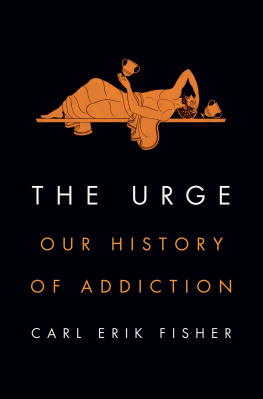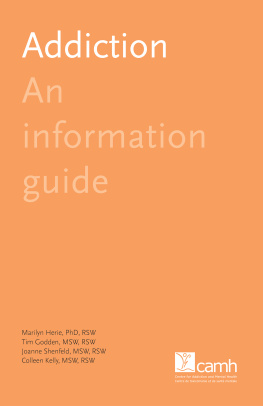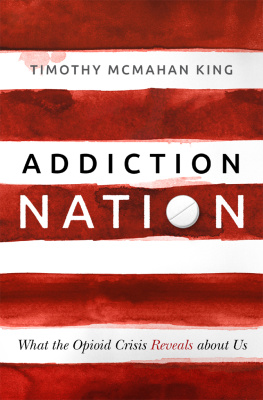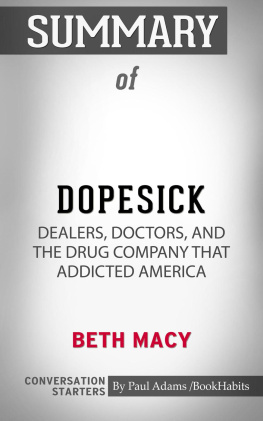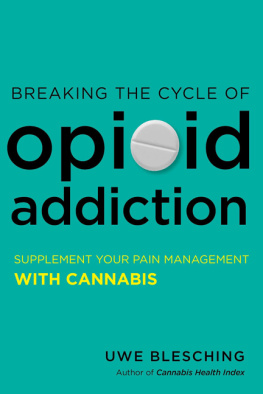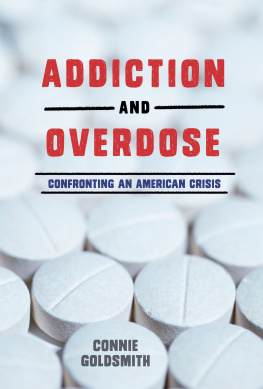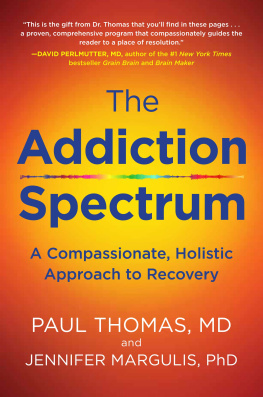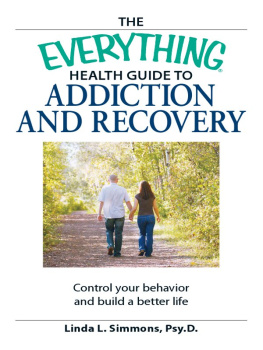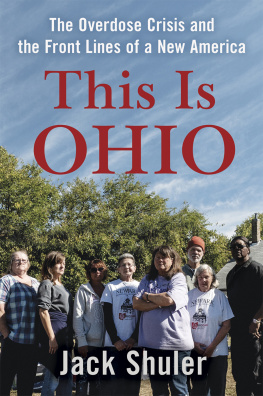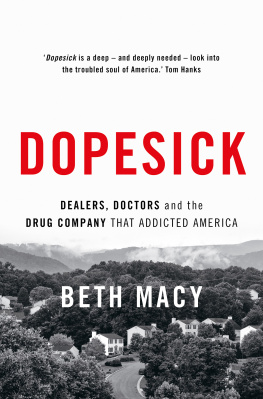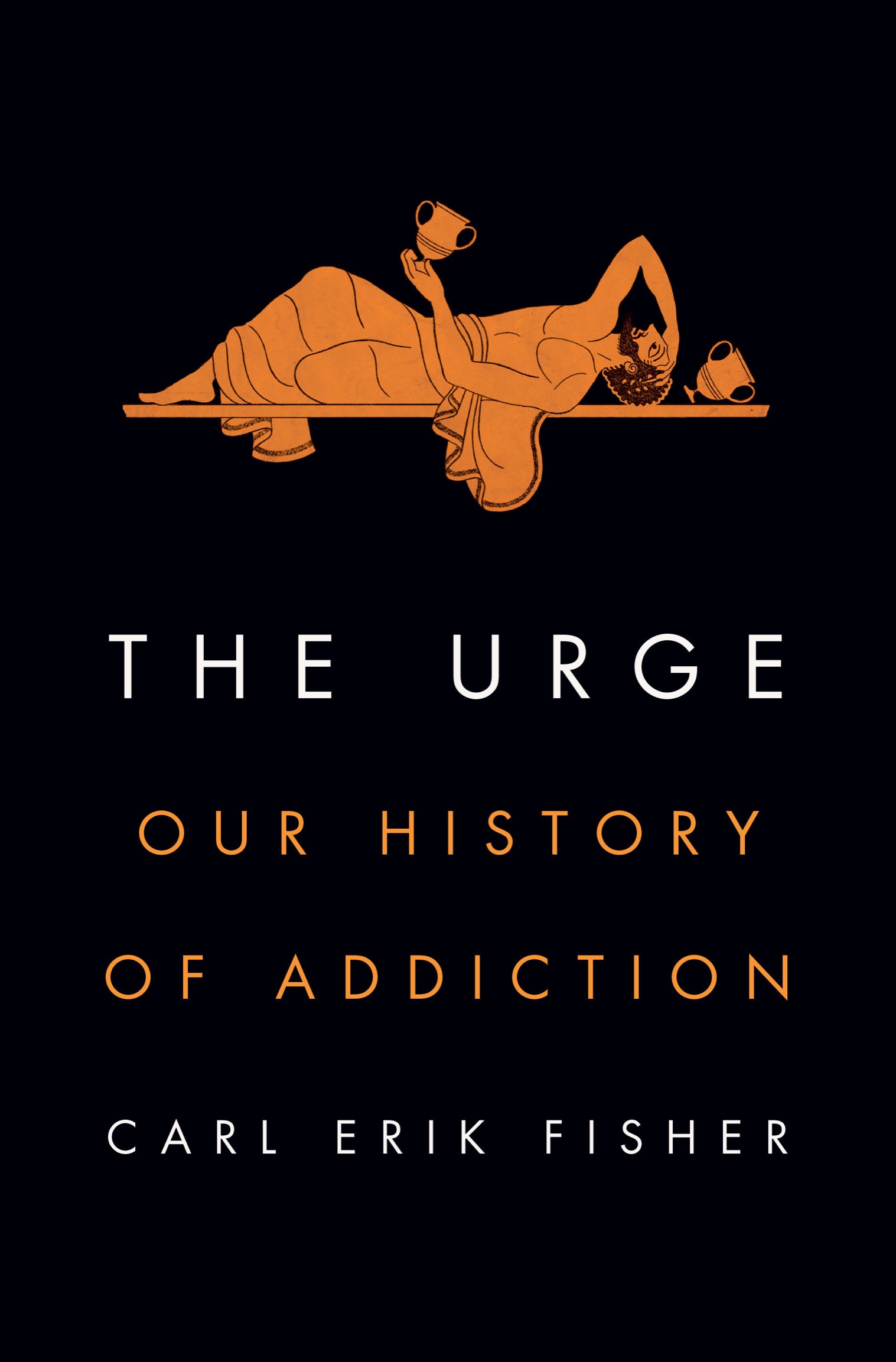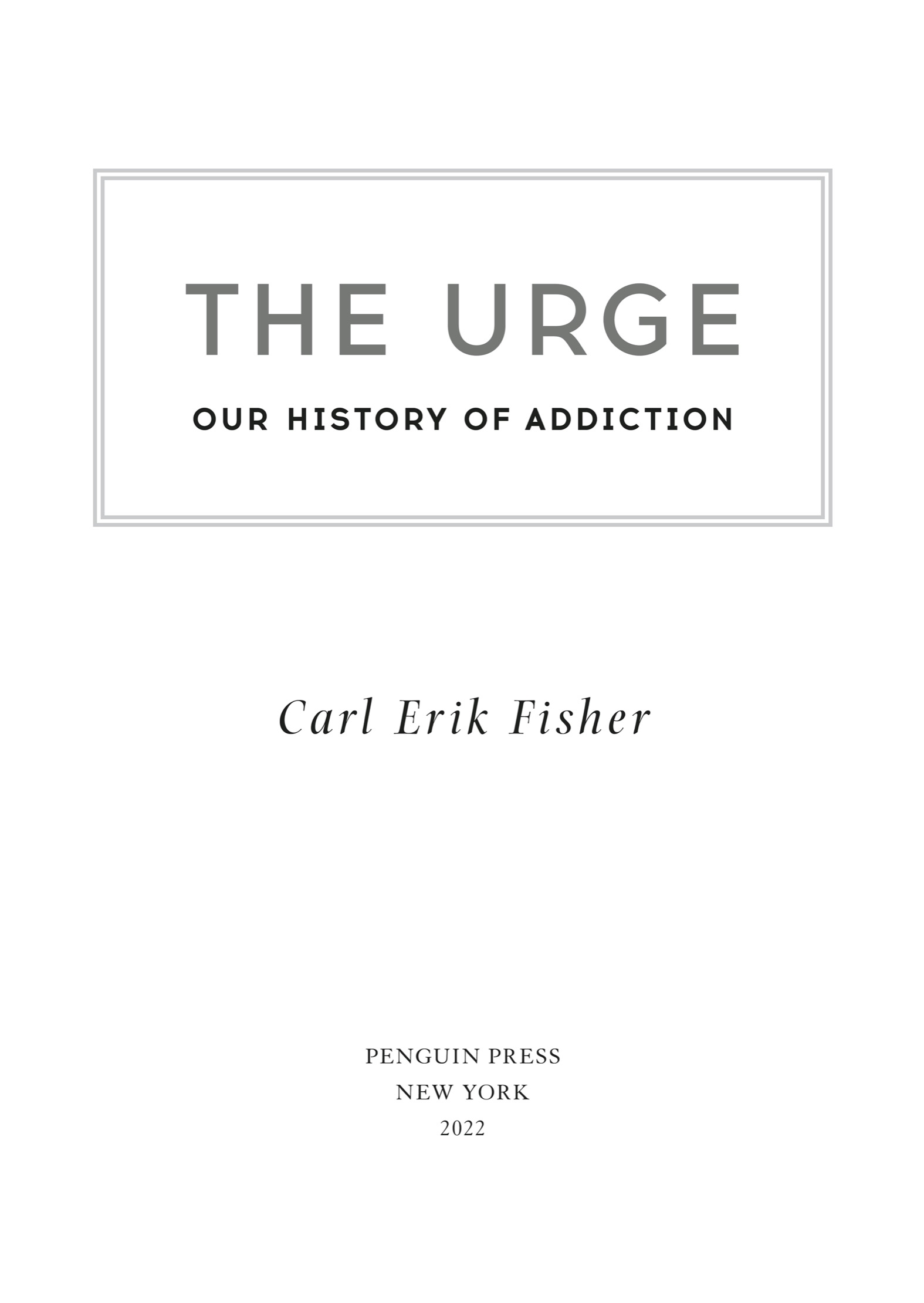Carl Erik Fisher - The Urge: Our History of Addiction
Here you can read online Carl Erik Fisher - The Urge: Our History of Addiction full text of the book (entire story) in english for free. Download pdf and epub, get meaning, cover and reviews about this ebook. City: New York, year: 2022, publisher: Penguin Press, genre: History. Description of the work, (preface) as well as reviews are available. Best literature library LitArk.com created for fans of good reading and offers a wide selection of genres:
Romance novel
Science fiction
Adventure
Detective
Science
History
Home and family
Prose
Art
Politics
Computer
Non-fiction
Religion
Business
Children
Humor
Choose a favorite category and find really read worthwhile books. Enjoy immersion in the world of imagination, feel the emotions of the characters or learn something new for yourself, make an fascinating discovery.
- Book:The Urge: Our History of Addiction
- Author:
- Publisher:Penguin Press
- Genre:
- Year:2022
- City:New York
- Rating:3 / 5
- Favourites:Add to favourites
- Your mark:
The Urge: Our History of Addiction: summary, description and annotation
We offer to read an annotation, description, summary or preface (depends on what the author of the book "The Urge: Our History of Addiction" wrote himself). If you haven't found the necessary information about the book — write in the comments, we will try to find it.
Carl Erik Fishers The Urge is the best-written and most incisive book Ive read on the history of addiction. In the midst of an overdose crisis that grows worse by the hour and has vexed America for centuries, Fisher has given us the best prescription of all: understanding. He seamlessly blends a gripping historical narrative with memoir that doesnt self-aggrandize; the result is a full-throated argument against blaming people with substance use disorder. The Urge is a propulsive tour de force that is as healing as it is enjoyable to read.Beth Macy, author of Dopesick
Even after a decades-long opioid overdose crisis, intense controversy still rages over the fundamental nature of addiction and the best way to treat it. With uncommon empathy and erudition, Carl Erik Fisher draws on his own experience as a clinician, researcher, and alcoholic in recovery as he traces the history of a phenomenon that, centuries on, we hardly appear closer to understandinglet alone addressing effectively.
As a psychiatrist-in-training fresh from medical school, Fisher was soon face-to-face with his own addiction crisis, one that nearly cost him everything. Desperate to make sense of the condition that had plagued his family for generations, he turned to the history of addiction, learning that the current quagmire is only the latest iteration of a centuries-old story: humans have struggled to define, treat, and control addictive behavior for most of recorded history, including well before the advent of modern science and medicine.
A rich, sweeping account that probes not only medicine and science but also literature, religion, philosophy, and public policy, The Urge illuminates the extent to which the story of addiction has persistently reflected broader questions of what it means to be human and care for one another. Fisher introduces us to the people who have endeavored to address this complex condition through the ages: physicians and politicians, activists and artists, researchers and writers, and of course the legions of people who have struggled with their own addictions. He also examines the treatments and strategies that have produced hope and relief for many people with addiction, himself included. Only by reckoning with our history of addiction, he arguesour successes and our failurescan we light the way forward for those whose lives remain threatened by its hold.
The Urge is at once an eye-opening history of ideas, a riveting personal story of addiction and recovery, and a clinicians urgent call for a more expansive, nuanced, and compassionate view of one of societys most intractable challenges.
Carl Erik Fisher: author's other books
Who wrote The Urge: Our History of Addiction? Find out the surname, the name of the author of the book and a list of all author's works by series.

